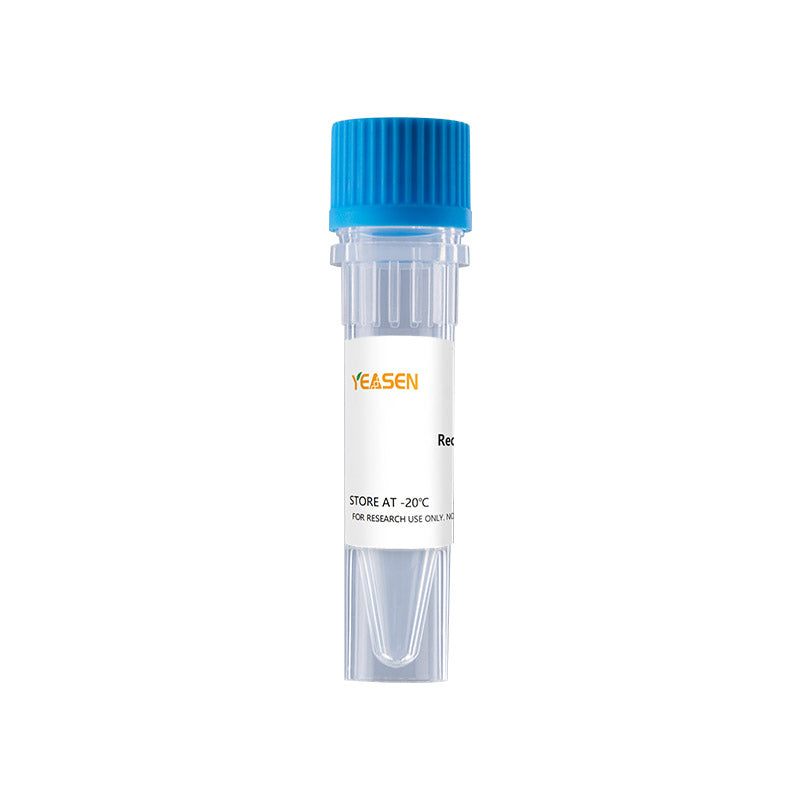Description
Fgf-8 is a member of the fibroblast growth factor (FGF) family that was initially identified as an androgen-inducible growth factor in a mammary carcinoma cell line. Fgf-8 is one of the key signaling molecules implicated in the initiation, outgrowth, and patterning of vertebrate limbs. The cloned 1.26-kb cDNA contained an open reading frame encoding 212 amino acid residues with 84%, 86%, and 80% amino acid identities to those of Xenopus, chick, and mouse, respectively. None of the FGF-8 isoforms exhibited activity to FGFR1b, 2b, 3b, but FGFR2c, 3c and FGFR4 can be activated by several FGF-8 isoforms. FGF-8 plays an important role in the regulation of embryonic development, cell proliferation, cell differentiation and cell migration, and it is required for normal brain, eye, ear and limb development during embryogenesis. FGF-8 shows limited expression in the normal adult, but low levels are found in the reproductive and genitourinary tract, peripheral leukocytes and bone marrow hematopoietic cells.
Product Properties
|
Synonyms |
AIGF, AIGFKAL6, HBGF-8, FGF-8c |
|
Accession |
|
|
GeneID |
|
|
Source |
E.coli-derived mouse FGF-8, Gln23-Arg268. |
|
Molecular Weight |
Approximately 28.1 kDa. |
|
AA Sequence |
QVRSAAQKRG PGAGNPADTL GQGHEDRPFG QRSRAGKNFT NPAPNYPEEG SKEQRDSVLP KVTQRHVREQ SLVTDQLSRR LIRTYQLYSR TSGKHVQVLA NKRINAMAED GDPFAKLIVE TDTFGSRVRV RGAETGLYIC MNKKGKLIAK SNGKGKDCVF TEIVLENNYT ALQNAKYEGW YMAFTRKGRP RKGSKTRQHQ REVHFMKRLP RGHHTTEQSL RFEFLNYPPF TRSLRGSQRT WAPEPR |
|
Tag |
None |
|
Physical Appearance |
Sterile Filtered White lyophilized (freeze-dried) powder. |
|
Purity |
>97% by SDS-PAGE and HPLC analyses. |
|
Biological Activity |
The ED50 as determined by a cell proliferation assay using murine balb/c 3T3 cells is less than 5.0 ng/mL, corresponding to a specific activity of > 2.0 × 105 IU/mg in the presence of 10 μg/ml of heparin. Fully biologically active when compared to standard. |
|
Endotoxin |
< 1.0 EU per 1μg of the protein by the LAL method. |
|
Formulation |
Lyophilized from a 0.2 μm filtered concentrated solution in PBS, pH 7.4, 500 mM NaCl. |
|
Reconstitution |
We recommend that this vial be briefly centrifuged prior to opening to bring the contents to the bottom. Reconstitute in sterile distilled water or aqueous buffer containing 0.1% BSA to a concentration of 0.1-1.0 mg/mL. Stock solutions should be apportioned into working aliquots and stored at ≤ -20℃. Further dilutions should be made in appropriate buffered solutions. |
Shipping and Storage
The products are shipped with ice pack and can be stored at -20 ℃ for 1 year.
1 month, 2 to 8 °C under sterile conditions after reconstitution.
3 months, -20 °C under sterile conditions after reconstitution.
Recommend to aliquot the protein into smaller quantities when first used and avoid repeated freeze-thaw cycles.
Cautions
- Avoid repeated freeze-thaw cycles.
- For your safety and health, please wear lab coats and disposable gloves for operation.
- For research use only!
Payment & Security
Your payment information is processed securely. We do not store credit card details nor have access to your credit card information.
Inquiry
You may also like
FAQ
The product is for research purposes only and is not intended for therapeutic or diagnostic use in humans or animals. Products and content are protected by patents, trademarks, and copyrights owned by Yeasen Biotechnology. Trademark symbols indicate the country of origin, not necessarily registration in all regions.
Certain applications may require additional third-party intellectual property rights.
Yeasen is dedicated to ethical science, believing our research should address critical questions while ensuring safety and ethical standards.

